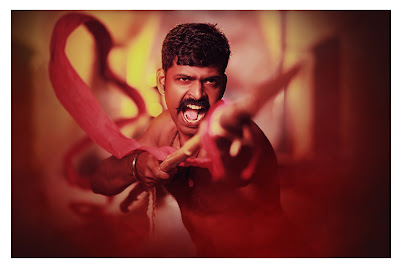The Ancient Art of Kalaripayattu: A Journey Through Time and Healing
The Ancient Art of Kalaripayattu: A Journey Through Time and Healing
Author Gurukkal Dr. S Mahesh
"Manamathu semmayanal mandiram japikkavendaam
Manamathu semmayanal vayuve uyartha vendaam
Manamathu semmayanal vasiye nirutha vendaam
Manamathu semmayanal mandiram semmayame"
In essence, possessing a robust and resolute mind obviates the need for mantras, pranayamas, or meditative sadhanas like Vaasi. A powerful mind, in itself, is the key to acquiring a strong and healthy body.
The wisdom behind these words goes beyond individual well-being; it extends to the broader canvas of society. A strong mind is the cornerstone of a healthy and fearless society. It equips individuals to face life's challenges with resilience and empowers communities to thrive in harmony. As we embrace this age-old wisdom, we are reminded that the journey to health, longevity, and happiness begins with the strength of our minds."
The essence of Kalaripayattu extends beyond combat; it emphasizes the mind's power and its role in both healing and overall well-being. The ancient art recognizes the body's ability to self-heal, with psychosomatic diseases linked to psychological and emotional factors. It underscores the importance of addressing the root causes of illnesses, striving for mental and emotional well-being, and embracing the concept of whole-person healing.
In an era where the future of medicine embraces whole-person healing, Kalaripayattu's holistic approach to mind, body, and spirit becomes increasingly relevant. This ancient martial art continues to inspire and educate, reminding us that true strength lies in the unity of the mind and the body.
 |
| Gurukkal Dr S Mahesh in Treatment |
Exercise, when done properly, is not just a means to gain physical health and longevity; it is the pathway to happiness and a powerful body. We have come to realize that the foundation of a strong body is, in fact, a strong mind.
In India, every health practice has always been intrinsically linked to the concept of health and a wholesome way of life. This holistic vision was deeply ingrained in the country's cultural fabric and finds expression in various ancient texts.
According to Ayurveda, an Ancient Indian System of Medicine, it is said:
"Punavritha… punah mitra
Puna bharya puna mihi
Ethath sarva punar labhya
Na sarera punah punah"
This verse suggests that one can potentially regain various aspects of life, such as family, spouse, kingdom, relationships, and wealth. However, when it comes to the loss of one's physical body, it is considered not just challenging but indeed impossible to recover. This reflects the profound value placed on the physical body and the emphasis on maintaining its well-being.
India, historically, was a nation that embraced a vision of health and a wholesome way of life. It was renowned as the birthplace of Ayurveda, Siddha Vaidya, and Kalaripayattu, each of which played a significant role in shaping the lifestyle of its people.
 |
| Gurukkal Dr S Mahesh |
In 1948, the World Health Organization redefined the concept of health, stating that it is "a state of complete physical, mental, and social well-being and not merely the absence of diseases." This definition aligns with the holistic perspective on health that India has cherished for centuries.
Ayurveda Further Elaborates on the Concept of Health, Stating:
"Kshamavan apthopasevi bhaved arogyam,"
which means that when you love and serve others, your health improves. In India, health extends beyond the individual; it encompasses a broader sense of well-being, with a strong focus on unconditional love for society.
Another Perspective from Ayurveda Emphasizes the Importance of Physical Activity:
"Vyayameth labhathe bhagyam, deerghayushyam, balam, sugham."
This verse underscores the belief that through regular exercise, one attains good fortune, a long and healthy life, strength, and happiness.
 |
| Gurukkal Dr S Mahesh |
These verses and philosophies collectively underscore the profound connection between health and lifestyle in India, emphasizing a holistic approach that extends to physical, mental, and social well-being.
Gurukkal Dr. S Mahesh

.jpg)





.png)
.png)

Comments
Post a Comment